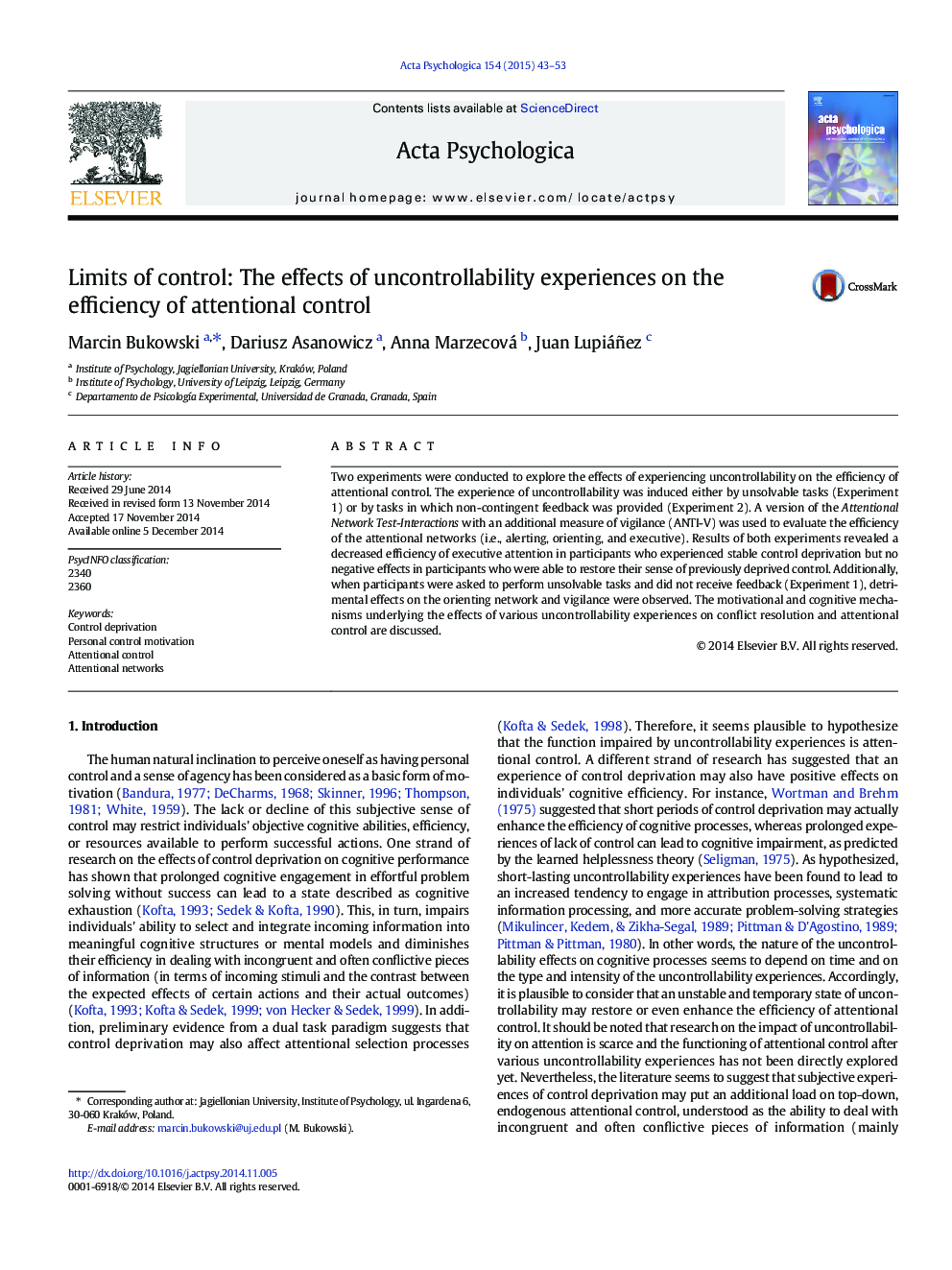| Article ID | Journal | Published Year | Pages | File Type |
|---|---|---|---|---|
| 919752 | Acta Psychologica | 2015 | 11 Pages |
•Uncontrollability experiences affect the efficiency of attentional control.•Stable control deprivation decreases the efficiency of executive attention.•The possibility to restore a previously deprived sense of control can prevent from detrimental effects on attention.
Two experiments were conducted to explore the effects of experiencing uncontrollability on the efficiency of attentional control. The experience of uncontrollability was induced either by unsolvable tasks (Experiment 1) or by tasks in which non-contingent feedback was provided (Experiment 2). A version of the Attentional Network Test-Interactions with an additional measure of vigilance (ANTI-V) was used to evaluate the efficiency of the attentional networks (i.e., alerting, orienting, and executive). Results of both experiments revealed a decreased efficiency of executive attention in participants who experienced stable control deprivation but no negative effects in participants who were able to restore their sense of previously deprived control. Additionally, when participants were asked to perform unsolvable tasks and did not receive feedback (Experiment 1), detrimental effects on the orienting network and vigilance were observed. The motivational and cognitive mechanisms underlying the effects of various uncontrollability experiences on conflict resolution and attentional control are discussed.
